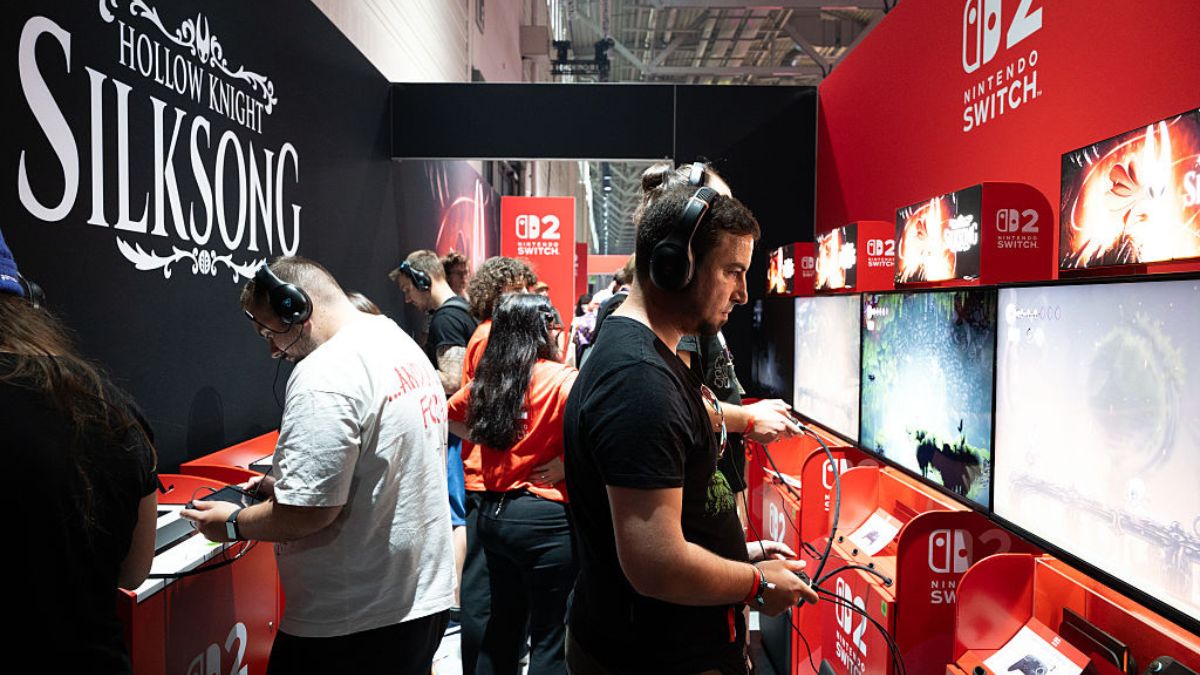
Unlike most people, my history with the Witcher series didn’t start with a trailer, some fervent discussions on message boards, or some gameplay footage from YouTube. Heck, it didn’t even start with me playing the game, or writing about it in any formal capacity. For me, The Witcher started with the unlikeliest of people: President Barack Obama.
You see, a little less than a year ago, President Obama made a speech in which he (offhandedly) mentioned that he received a video game from the Polish Prime Minister during their last visit. After a little digging, I was surprised to discover that the game in question was none other than The Witcher 2: Assassins of Kings.
Now, don’t get me wrong, my interest in this story has nothing to do with the fact that the President might have a fleeing interest in video games, but rather the revelation of how important the Witcher series is to the nation of Poland as a whole. I mean, after all, they did give it as a presidential gift. This might not seem like such a big deal to some, but let me pose a question to prove my point: “If your country’s leader were to present a video game to a foreign leader as a representation of your country, what would he give?”
As someone who is Canadian born yet residing in America, I honestly have no solid answer, with respect to both countries. Sure, there are plenty of excellent games from both sides of the border, but none of them really scream ‘cultural identity,’ which is a shame now that I think about it (and a discussion for another article I suppose).
It’s at this point that I was all ready to dive into the Witcher games, which were already sitting in my Steam library, backed by my shiny new gaming PC. The only problem was, they were RPGs. I don’t have any issue with the genre as a whole, but by and large, RPGs just don’t mesh with my playstyle. As someone who prefers shorter, more compact experiences (allowing me to move onto new games quickly), the lengthy and sometimes grating narratives that accompany role playing games might seem alluring to most, but they are often a deterrent to myself.
Still, I did take the plunge and played bits (but not all) of both The Witcher and its sequel, and I walked away thoroughly impressed, despite a few concerns regarding the complex narrative and combat system. If I’m being honest, I was sure that CD Projekt RED would chart the same course for The Witcher 3: Wild Hunt, offering up much of the same game, with some open-world window dressing for good measure. Thankfully, I was completely wrong.
What immediately surprised me about The Witcher 3 is just how well written the entire experience is, not necessarily from a plot standpoint, but how the developers manage to ground you in the world they’ve created, and make the ongoing events seem that much more personal and important. The games as a whole (which are adapted from a Polish series of the same name) are as complex as they come, and while reading the books is hardly required to enjoy the game, brushing up on the key events and characters is never a bad choice. I myself spent a few hours re-reading and re-watching countless series recaps and explanations, but the game does an admirable job of laying down the groundwork, slowly introducing key characters as they make their appearances and weaving in the events of the past few games when needed.
In The Witcher 3: Wild Hunt, you once again take the reigns of Geralt of Rivia, a (you guessed it) Witcher whose main goal throughout the entire game is to reunite himself with his adoptive daughter of sorts, Ciri, all while dealing with the somewhat paranormal (and titular) Wild Hunt, who are also trying to hunt down Ciri for their own nefarious purposes. Attempting to explain the backstory and lore of the series in a few paragraphs would prove nigh impossible, but I can assure you that even if you haven’t played a lick of any of the other entries in the series, you’ll be able to muddle your way through this one, assuming you take the time to pay attention to other characters and engage in dialogue when the opportunity arises.
Plot complexities aside, it’s not the story beats that will draw you in, but simply just how fleshed out the world is. While The Witcher 2 did an admirable job of explaining the political landscape and motives of the key leaders you came across, Geralt always felt more like a side character rather than a key player. Luckily, The Witcher 3 largely fixes that problems.
From one-time quest NPCs to barons and emperors, Geralt comes off as an interested party this time around, forging relationships and friendships with a near endless parade of interesting characters. Thematically, the game has its fingers in a few pies, touching on subjects including the consequences of war (both from a militaristic and civilian perspective) to the role of women in society.

It’s a living, breathing and not to mention vast world, but the move to an open-world setting does the series wonders as a whole. While I was initially a little dismayed that the game is comprised of large swaths of land that are independent and non-connected (you travel between them via an in-game map, rather than on foot), each area is full of plenty of distractions, and its not uncommon to find yourself simply roaming the countryside on horseback, taking in sights and keeping an eye out for anything of interest. There’s plenty of side quests and optional missions to undertake, which run the gamut from killing beasts as part of Witcher contracts, or helping out local townsfolk.
This might sound like par for the course, but unlike other games in the genre, which feature way too many fetch quests, The Witcher 3 has an uncanny ability of fleshing out what seem like simple quests into something much more meaningful in the long run. For example, an early sidequest in the game’s prologue tasks you with eliminating a ghost which is haunting a local well. What starts out simple enough eventually develops into a hunt for the truth in an attempt to help said ghost move on to the afterlife, as she is haunted by the murder of both her and her loved one.
It’s these simple touches that add a lot of nuance and personality to the game as a whole, coupled with the ability to choose your own dialogue responses. Much like the Mass Effect series, dialogue choices not only offer up the chance to catch up on the happenings across the Continent, but there are plenty of opportunities to make decisions which could affect the outcome of a particular quest or encounter. I won’t spoil any of these here (as it’s much more enjoyable to come across these organically), but the one design decision which makes these choices all the more important is that the game never explicitly tells you the outcome of your actions. Shying away from such overt and binary decisions is a bold decision, but one that ultimately makes the game that much stronger in the long run.



















Published: Jun 2, 2015 12:50 pm